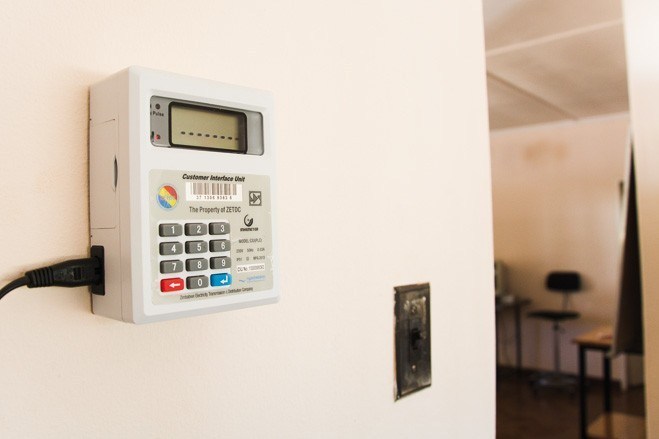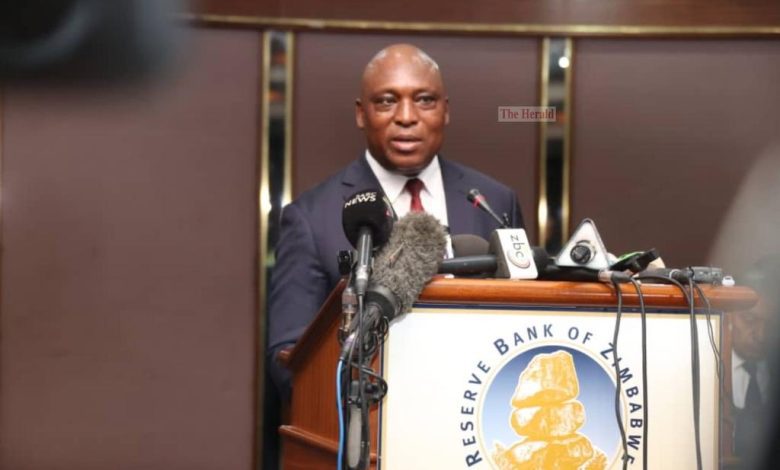‘Expect no major changes on interest rates’, as Monetary Policy Committee meets
As the Monetary Policy Committee (MPC) convenes today in Harare, all eyes will be on the key decisions that could shape the country’s economic trajectory.
The last MPC meeting, held on December 3, 2024, took a cautious approach, keeping the Bank Policy rate at 35 percent and statutory reserve requirements unchanged at 15 percent for savings and time deposits, and 30 percent for demand and call deposits.
The committee also sought to deepen price discovery in the interbank foreign exchange market and introduced the Targeted Finance Facility (TFF) to support the productive sectors of the economy.
Measures taken in December were aimed at curbing inflationary pressures and stabilising the exchange rate, following a spike in month-on-month inflation to 37,2 percent in October 2024.
While recent data from Zimbabwe National Statistical Agency (Zimstat) shows a slowdown in ZiG monthly inflation to -0,1 percent in March from 0,5 percent in February, USD inflation remains surprisingly elevated.
USD annual inflation stood at 15 percent, largely unchanged from 15,1 percent in February, while USD monthly inflation inched down to 0,1 percent from 0,2 percent in the prior month.
The biggest driver of inflation over the past month has been food and non-alcoholic beverages.
However, the liquidity constraints in the market have sparked fresh concerns among economic analysts, with many calling for an integrated approach to soften the tightening conditions.
Expert Opinions
Economist, Enoch Rukarwa, acknowledges the gains made in stabilising inflation and exchange rate volatility but warns that liquidity constraints could stifle economic growth.
“A lot of privately and publicly listed companies are becoming insolvent, going into corporate rescue and some are folding, which is a negative externality to overall economic growth and development,” he said.
While the Targeted Finance Facility has provided relief to some, Rukarwa argues that it is insufficient to address the broader economic malaise.
“The Central Bank can deploy a range of conventional and unconventional monetary policy tools designed to inject liquidity into the economy, lower the cost of borrowing and promote aggregate investment,” he noted.
He further suggested a revision of the statutory reserve requirements, currently at 30 percent, given that month-on-month inflation is now in single digits.
Investment analyst, Tafara Mtutu, however, believes that the MPC will likely maintain its current policy stance.
“With regards to the upcoming MPC meeting, we do not think there will be much of a change, especially as far as reserve requirement ratios and interest rates are concerned. The current monetary policy is fostering some kind of stability,” he explained.
Mtutu emphasised that while the existing policy framework is functional, adjustments may be necessary.
“It is still too soon to say that it is sustainable, but for now, it is doing the job. Rather than making major tweaks, I think they will try to fine-tune areas where things are not going so well,” he added.
One key area he highlighted is the circulation of the ZiG, which remains low despite Central Bank assurances of its sufficiency.
“They will try to find ways to incentivise people with ZiG balances and have them move that money around to stimulate economic activity.”
Investment analyst, Malone Gwadu, expects a focus on easing the liquidity crunch, particularly for the ZiG.
“The elimination of money supply growth to curb inflation has had the unintended consequence of reducing liquidity, especially the ZiG, due to high interest rates for market players and limited credit availability for banks,” Gwadu noted.
He anticipates discussions around adjustments to the existing framework to accommodate real economic needs.
“Deepening the TFF, which is aimed at production, will likely be a key point of discussion. Additionally, interbank trading will be quite topical, as there is a strategic intent to fully liberalise the market,” he said.
The RBZ and BAZ’s Stance
The Reserve Bank of Zimbabwe (RBZ) Governor, Dr. John Mushayavanhu, remained tight-lipped on what to expect from the MPC meeting.
“I cannot pre-empt the MPC meeting, but will issue our usual statement at the end of the day,” he stated on Thursday.
Similarly, the Bankers Association of Zimbabwe (BAZ) President, Lawrence Nyazema, refrained from speculation.
“Unfortunately, we cannot say what we expect because of other discussions held and to be held with the Central Bank, and it would be improper for us to discuss the issues publicly,” he said.
What to watch for
With the MPC expected to deliberate on ways to balance liquidity injections with inflation control, analysts believe that subtle policy refinements rather than sweeping changes are on the horizon. Adjustments to the TFF, a review of reserve requirements and efforts to enhance the circulation of the ZiG could be key focal points.
As the RBZ continues to navigate the challenges of monetary stability and economic growth, businesses and investors will be watching closely to see whether the central bank opts for continuity or a measured shift in policy direction.-ebsinessweekl








